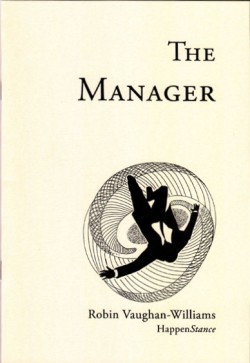I’ve just been to a lecture by Michael Hardt and Antonio Negri at the University of Iceland. I was particularly interested to hear them speak as I read an article by Slavoj Žižek the other day in New Left Review in which he borrows from Hardt and Negri their concern with the commons. He talks about ecology, intellectual property rights, and bio-technology as the sites of three of the main antagonisms of contemporary capitalism, and characterises these three antagonisms as issues of the commons. The enclosure and expropriation of the commons is a common thread running through the history of capitalism, linking 18th-century England and modern China, and one that is familiar and well-established, so it seems an effective way of understanding and connecting the politics of these antagonisms Žižek describes. The external environment, culture, nature, and the internal environment (the body) are all common resources that are under threat of being enclosed, exploited, expropriated, and even destroyed for private gain.
For me the most interesting part of Michael Hardt’s talk was probably his distinction between material and immaterial property. I wasn’t exactly sure what was meant by immaterial property, probably because there was a TV camera about two feet away pointing right at me while he was on this topic, and this rather affected my ability to concentrate. Something to do with producing wellbeing, communication, software, knowledge, presumably organisation as well, that kind of thing. He compared this distinction to the distinction made by Marx between mobile and immobile property. Immobile property is, of course, chiefly land, while mobile property refers mainly to industrial products. Hardt proposes that the main distinction between different types of property is now that of material versus immaterial.
The distinction between immobile and mobile property corresponds to that between land and capital, and to the social distinction between the aristocracy and the bourgeoisie. These were two social classes, two ruling classes indeed, one established, the other in the making. Sometimes they worked together, at other times, as in the French Revolution, they were in opposition to each other. How do the concepts of material and immaterial property map onto our social structure, I wondered, are they supposed to correspond to different factions in the ruling class in the same way as mobile and immobile property? We often talk about the ruling class being divided between the interests of finance capital and industrial capital, and I suppose that finance probably counts as an immaterial product, but I’m not sure how the interests of the owners of call centres, educational institutions, software houses, and so on differ significantly from the owners of material industries.
But it was not so much the ruling class as the conditions of the workers that Hardt seemed to be getting excited about. In immaterial industries, he claims, workers have a greater degree of freedom or power than their counterparts in material industries, and – this is the important bit – a greater opportunity (and perhaps propensity) to embark upon a liberation struggle…this was one of the points where I lost concentration – maybe it was the camera, or maybe it was just a little bit woolly – but that’s the gist of it anyway. So the development of immaterial property (I’m not sure if material property plays much of a role other than to help define immaterial property) offers us a window of opportunity for overcoming capitalism.
Antonio Negri read his lecture in Italian with Icelandic surtitles, and I decided that, even halfway through Icelandic for foreigners level II, I’d probably understand more in Italian, so I closed my eyes and listened. I learned Italian when I was 18 and travelling in Italy for three weeks on an inter-rail pass, so, as you can imagine, I didn’t learn very much Italian. I do remember, however, being amazed at how much I could understand. Sometimes people started talking to me and I understood pretty much everything they said. I didn’t know whether it was to do with the proximity with French or Latin (I’d learnt Latin for three years at school then promptly forgotten everything except hic, haec, hoc, eram, eras, erat, and huius, huius, huius…but maybe some of it was still rattling around my subconscious), but Italian felt like it was a natural language, like it was somehow already within me, and I only had to rediscover it, like exercising some neglected muscle. So I closed my eyes tonight and thought, ‘maybe, maybe I can do it again’.
And I understood a surprising amount. I wasn’t able to follow any arguments, but I could tell most of the time what he was talking about and recognised a few phrases, like ‘production of subjectivity’ (in Italian, of course, but it only works one way so I can’t repeat the Italian). I even picked up a bit of Icelandic. Samstoða means ‘solidarity’, and sjálfsemd ‘identity’ (I think).
Oh, and I think it was organised by Nýhil (yes, the poetry group, but they evidently do more than just poetry).
